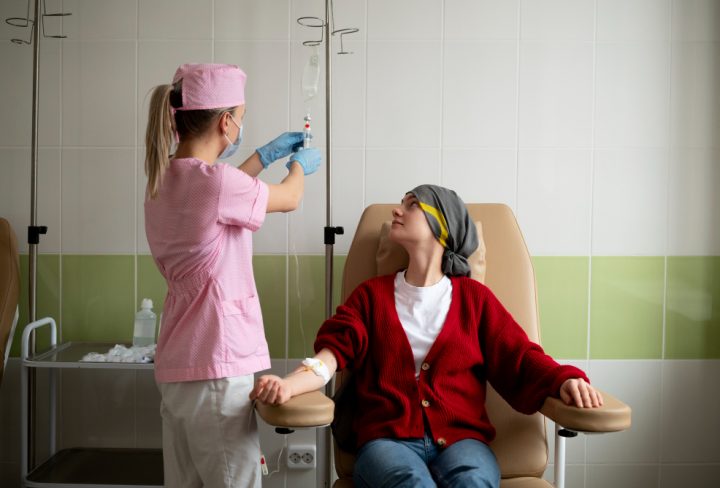Chemotherapy, often referred to simply as “chemo,” is a cornerstone of cancer treatment that has transformed the landscape of oncology. This powerful therapeutic approach involves using medications to destroy cancer cells or inhibit their growth and spread throughout the body.
Understanding Chemotherapy: Chemotherapy is a systemic treatment that targets cancer cells wherever they may be in the body. Unlike Other treatments such as radiation therapy or surgery, which target specific body areas, chemotherapy circulates throughout the bloodstream, reaching cancer cells in different organs and tissues. Chemotherapy drugs work by disrupting the processes that cancer cells rely on to grow and divide, ultimately leading to their destruction or inhibition.
Chemotherapy: How It Works?
Chemotherapy destroys cancer cells and prevents them from multiplying in different ways:
· Adjuvant therapy (destroys cancer cells after surgery or radiation therapy)
· Curative therapy (eliminates cancer in combination with radiation therapy or surgery)
· Neoadjuvant therapy (shrinks the tumour before surgery or radiation therapy)
· Palliative therapy (shrinks tumours and lessens symptoms)
How To Prepare for Chemotherapy?
· Your oncologist will run some tests to ensure you are healthy enough for chemotherapy.
· Know everything as much as possible about your treatment and chemotherapy drugs, including the benefits and side effects.
· Take prior precautions to manage your side effects before treatment
· Consult a dentist to check if your teeth are healthy and your mouth is infection-free. Also, take precautions for mouth sores and changes in taste buds before starting treatment.
· Talk to your oncologist about your treatment routine. Many people may be suggested to eat a snack about an hour before treatment to prevent side effects like nausea.
Administration Methods: Chemotherapy can be administered in various ways, including intravenously (IV), orally (in pill or liquid form), intramuscularly (IM), or subcutaneously (subQ). The choice of administration method depends on factors such as the type of cancer being treated, the specific chemotherapy drugs prescribed, the patient’s overall health and treatment goals, and logistical considerations. In some cases, chemotherapy may be given as a single agent or in combination with other drugs as part of a multidrug regimen.
Side Effects: Side effects may vary depending on the type and dose of drugs used, as well as individual factors such as age, overall health, and treatment duration. Common side effects may include nausea and vomiting, fatigue, hair loss, loss of appetite, changes in taste or smell, mouth sores, diarrhoea or constipation, decreased blood cell counts (leading to increased risk of infection, anaemia, or bleeding), and peripheral neuropathy (tingling or numbness in the hands and feet). Side effects are often temporary and can be managed with supportive care measures such as medications, dietary changes, and lifestyle modifications.
While it can be associated with challenging side effects, chemotherapy plays a crucial role in targeting and destroying cancer cells throughout the body, leading to enhanced quality of life for many cancer patients. As research continues to advance and new chemotherapy drugs and treatment strategies emerge, the future holds promise for further improvements in cancer outcomes and continued progress in the fight against this devastating disease.


